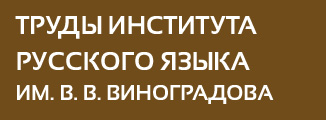CONTACT, SHIFT & THE LIFE OF A LANGUAGE
Аннотация:
This paper investigates the kinds of linguistic changes that occur during language shift, arguing that these changes are not random and chaotic, as predicted by many who study obsolescence, but show systematicity. At the same time, there is no evidence to support a theory that linguistic changes that occur during rapid shift spread as there is little indication that shifting speakers comprise a speaker community; that is, these changes do not appear to diffuse across speakers. This suggests that the overall systematicity is indicative of underlying tendencies in the direction of change. Moreover, while the catalyst for change is language shift, the actual changes documented here suggest the adaptation of language-internal resources (such as paradigmatic leveling, loss of a marginal paradigm and extension of a pre-existing one) rather than the imposition of structure from the dominant majority language, which is associated with bilingual speakers who are not shifting to Russian in this case study. These claims are illustrated on the basis of data from language shift from Even (a Tungusic language) to Russian as spoken in the village Berezovka in the Sakha Republic (Yakutia). The study of Berezovka Even allows us to examine the speech of a single dialect group with speakers of varying levels of proficiency.


